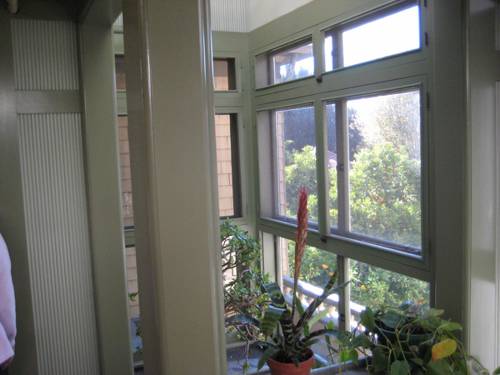
FAQ About Indoor Plant Water pH Regulation

What is pH and why is it important for indoor plants?
The pH level is a measure of how acidic or alkaline a substance is on a scale of 0 to 14, with 7 being neutral. For indoor plants, the pH level of the water used for irrigation is crucial because it affects the availability of essential nutrients in the soil. Most indoor plants prefer a slightly acidic environment, with a pH range of 6.0 to 7.0. This range ensures that nutrients in the soil are soluble and can be absorbed by plant roots efficiently.

How can I test the pH level of my water?
You can test the pH level of your water using pH test strips, a digital pH meter, or a liquid pH test kit. These tools are readily available at garden centers or online. To test, simply follow the instructions provided with the product, usually involving dipping the strip or meter into the water and comparing the result to a color chart or reading the digital display.

What are the consequences of using water with a wrong pH level on indoor plants?
Water with an inappropriate pH level can lead to nutrient deficiencies or toxicities in indoor plants. If the water is too acidic or too alkaline, certain nutrients may become unavailable for absorption, while others can accumulate to toxic levels. Symptoms include yellowing leaves, stunted growth, and overall poor plant health.

How can I adjust the pH of my water to suit my indoor plants?
To adjust the pH of your water, you can use pH up or pH down solutions, which are available at gardening stores. For a natural approach, adding a small amount of baking soda can increase pH, while vinegar or lemon juice can decrease it. Always make changes slowly and retest the water to avoid drastic shifts that might shock the plants.

What is the ideal pH range for most indoor plants?
The ideal pH range for most indoor plants is between 6.0 and 7.0. Within this range, nutrients are optimally available, and plants can effectively absorb what they need for healthy growth and development.

Can tap water affect the pH level for watering indoor plants?
Yes, tap water can significantly affect the pH level. The pH of tap water varies by location and often contains added chemicals like chlorine, which can alter pH. It is advisable to test your tap water before using it on indoor plants and make necessary adjustments if needed.

Are there any household items that can naturally alter water pH?
Yes, several household items can be used to adjust the pH of water naturally. For increasing pH, you can use baking soda. For decreasing pH, consider using vinegar or lemon juice. These should be used cautiously to avoid significant pH shifts.

Do different plants require different pH levels?
Yes, different plants can have varying pH preferences. While most houseplants thrive in a pH range of 6.0 to 7.0, some specific species, like orchids or blueberries, prefer slightly more acidic conditions. It's essential to check the specific requirements of your plants.

How often should I check the pH level of water for my indoor plants?
It's a good practice to check the pH level of your water at least every few weeks, especially if you notice any signs of nutrient deficiencies in your plants. Regular monitoring helps to maintain the ideal conditions and promptly address any issues that arise.

What are pH-balanced water solutions, and should I use them?
pH-balanced water solutions are commercially available products designed to maintain a neutral pH level in water, usually close to 7.0. These can be useful if your water supply has unpredictable pH levels, but they are generally not necessary if you can adjust the pH naturally or through simple solutions.

Can rainwater be used for watering indoor plants, and does it have a consistent pH level?
Rainwater is often a good choice for watering indoor plants as it is generally free of chemicals found in tap water. However, its pH can vary depending on local atmospheric conditions and pollution levels. It is advisable to test rainwater if used regularly for precision in pH management.

What role do soil types play in indoor plant water pH regulation?
The soil type can significantly influence water pH and nutrient availability. Different soil mixtures have varying pH buffering capacities. For instance, peat-based soils tend to be more acidic, while limestone-based soils can be more alkaline. Understanding your soil's properties can help in regulating pH more effectively for indoor plants.

Can overcorrecting pH levels harm indoor plants?
Yes, overcorrecting pH levels can harm plants by causing pH shock, disrupting nutrient availability, or causing root damage. It's crucial to make pH adjustments gradually and to monitor plants closely for any adverse reactions to changes.

Is there a relationship between pH level and water hardness?
Water hardness, which is determined by the presence of calcium and magnesium, can affect pH levels. Hard water tends to have a higher pH due to these alkaline minerals. Understanding the hardness of your water can help you better manage and balance pH for your indoor plants.

How can I manage both pH and plant-specific watering needs effectively?
To manage both pH and watering needs, start by understanding your plant's specific requirements and the characteristics of the water you use. Regularly test and adjust the pH as necessary, and water your plants consistently based on their hydration needs, adjusting more or less depending on growth cycles, temperature, and humidity.

What are some common signs that my indoor plant is affected by water pH issues?
Common signs that indoor plants are suffering from improper water pH include yellowing leaves, brown leaf tips, slow growth, and poor flowering or fruiting. If you notice these symptoms, it is wise to test and adjust the pH level of your irrigation water.

Can pH issues be reversed, and how?
Yes, pH issues can often be corrected by slowly adjusting the water pH back to the desired range using pH up or down solutions and retesting. Additionally, ensuring that soil is not compacted and remains well-aerated can assist in recovering optimal nutrient uptake.

Do commercial plant foods or fertilizers affect water pH?
Commercial fertilizers can indeed affect water pH. Some fertilizers are designed to either lower or raise pH based on plant needs. Therefore, it's essential to be aware of the properties of fertilizers used and regularly check and adjust the pH of your water to prevent nutrient imbalances.

Is distilled water a good option for maintaining ideal pH levels for indoor plants?
Distilled water is often near-neutral in pH and free from minerals and chemicals, making it a good base for watering plants. However, its complete lack of minerals means nutrients must be supplied through other means, such as soil amendments or fertilization, to ensure proper plant growth.

Does pH effect differ in hydroponics compared to soil-based plant systems?
Yes, in hydroponics, precise control of pH is even more critical than in soil-based systems because plants directly absorb nutrients from the water solution. Hydroponic systems generally require more frequent monitoring and adjustments to maintain the ideal pH range, typically between 5.5 and 6.5, depending on the plant species.
